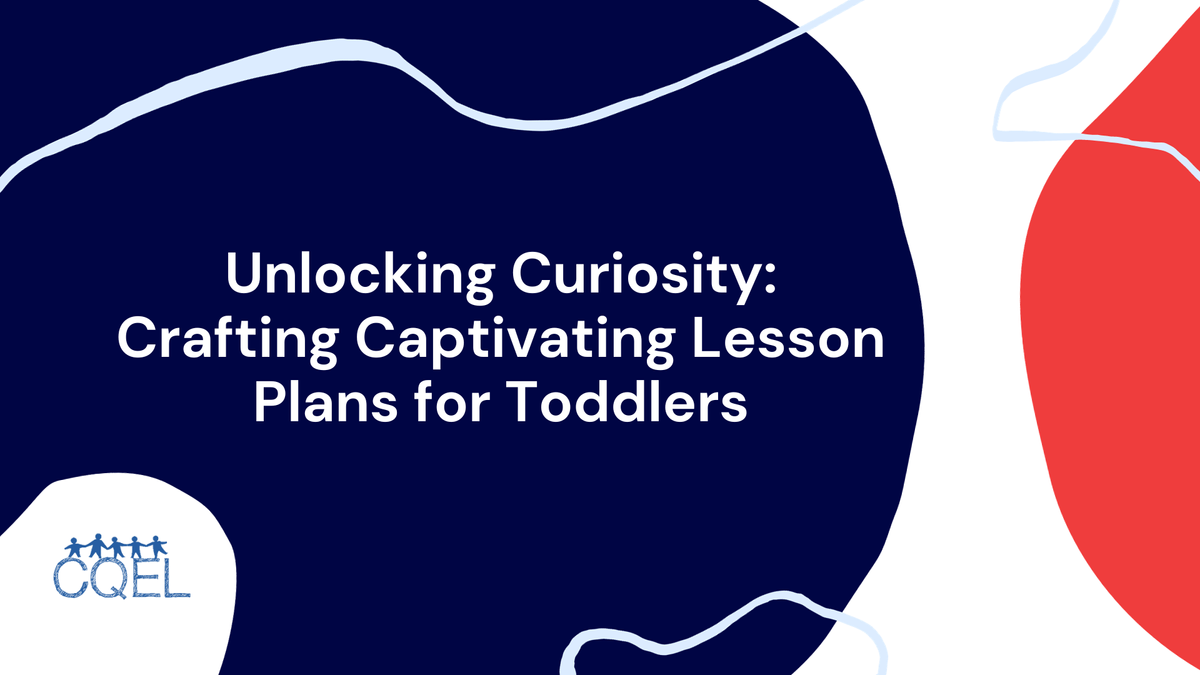Unlocking Curiosity: Crafting Captivating Lesson Plans for Toddlers
By understanding the unique needs and learning styles of our tiny charges, we can craft experiences that ignite their imaginations, fuel their development, and make lesson planning a joyful adventure.

Ah, toddlers! Those pint-sized bundles of boundless energy and endless curiosity. For the aspiring childcare provider, planning captivating lessons for these little explorers can feel like navigating a playground blindfolded. By understanding the unique needs and learning styles of our tiny charges, we can craft experiences that ignite their imaginations, fuel their development, and make lesson planning a joyful adventure.
Understanding the Wonder Years:
First things first, ditch the one-size-fits-all approach. Toddlers learn through play, exploration, and repetition. Forget rigid structure and embrace open-ended activities that tap into their natural curiosity and sense of wonder. Think sensory experiences, creative expression, social interactions, and plenty of movement.
Setting Sail with Learning Objectives:
Where are we heading? Every lesson needs a clear destination, even for our miniature adventurers. Keep your objectives simple, measurable, and aligned with child development milestones. Aim for skills like color recognition, object sorting, basic vocabulary, or developing gross motor skills. Remember, small victories are big steps in a toddler's world.
Gathering Treasures: Essential Lesson Materials:
Think pirate, not professor! Your "treasures" are everyday objects transformed into learning tools. Brightly colored blocks become towers and castles, scarves dance into windmills, and paint splatters morph into colorful masterpieces. Playful props, open-ended materials, and interactive elements fuel exploration and imagination.
Embarking on the Adventure: Engaging Lesson Procedures:
Time to set sail! Plan activities that are short, active, and bursting with variety. Think sing-alongs with silly actions, storytelling with puppet voices, sensory exploration with textured baskets, or outdoor scavenger hunts for specific colors. Keep it lively, engaging, and adaptable – remember, flexibility is key when navigating the unpredictable seas of toddler attention.
Navigating the Rough Seas: Related Requirements and Assessments:
Don't get lost in paperwork! Keep documentation simple and focused on observing progress towards learning objectives. Capture anecdotal notes, document developmental milestones, and celebrate achievements both big and small. Remember, assessments for toddlers are about celebrating progress, not perfection.
Anchoring Success: Reflection and Celebration:
Every journey deserves a moment of reflection. After each lesson, take a moment to evaluate what worked, what didn't, and where adjustments might be needed. Share your successes with colleagues, discuss challenges, and remember – learning is a journey, not a race.
Bonus Tips:
- Involve families! Share lesson plans and invite input on activities that connect learning to everyday life.
- Create a predictable routine within which to inject the element of surprise.
- Remember, a positive learning environment is crucial. Foster a space of warmth, respect, and encouragement.
- Don't be afraid to get messy! Play alongside your tiny pirates, unleash your inner child, and enjoy the journey!
Crafting captivating lesson plans for toddlers isn't about rigid blueprints; it's about creating a framework for adventure. By understanding their unique needs, embracing playful possibilities, and celebrating each little victory, we can transform early childhood education into a vibrant playground of learning, laughter, and endless discovery. So, grab your curiosity compass, chart a course of engaging activities, and set sail on a journey of playful learning with your tiny shipmates!
Additional Resources:
- Learning to Read: https://www.childrenlearningreading.org/: https://www.childrenlearningreading.org/
- The Center on the Developing Child at Harvard University: https://www.developingchild.harvard.edu/: https://www.developingchild.harvard.edu/
- PBS Parents: https://www.pbs.org/parents/: https://www.pbs.org/parents/
